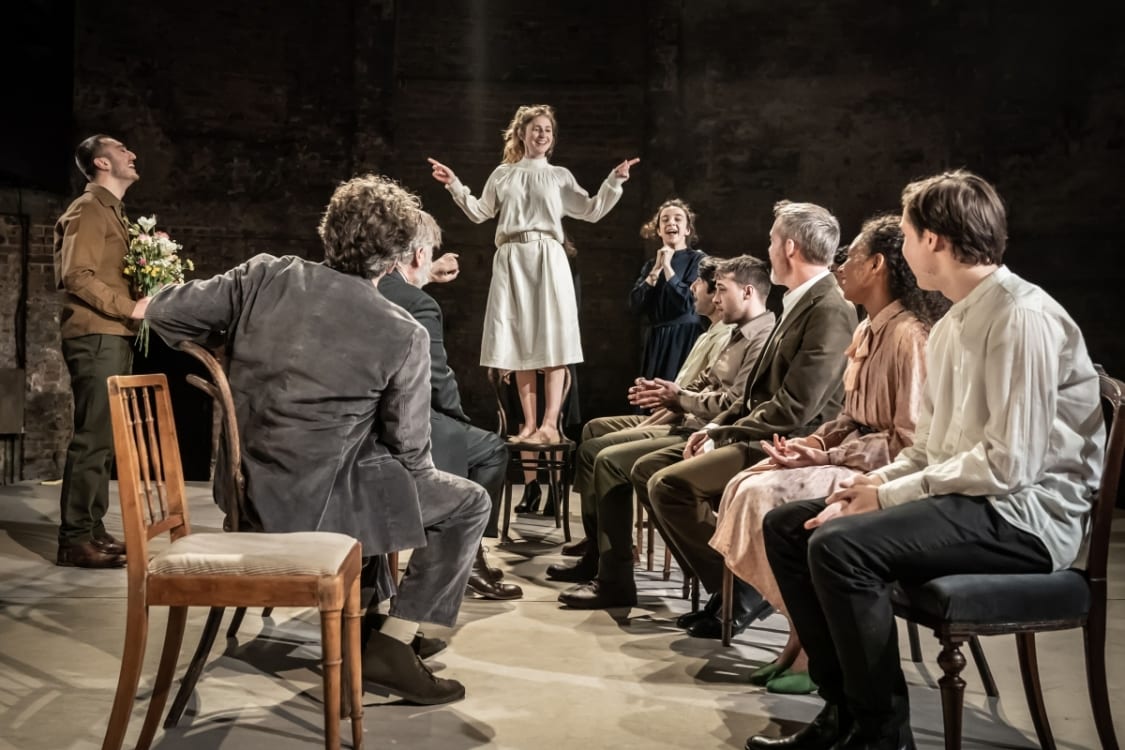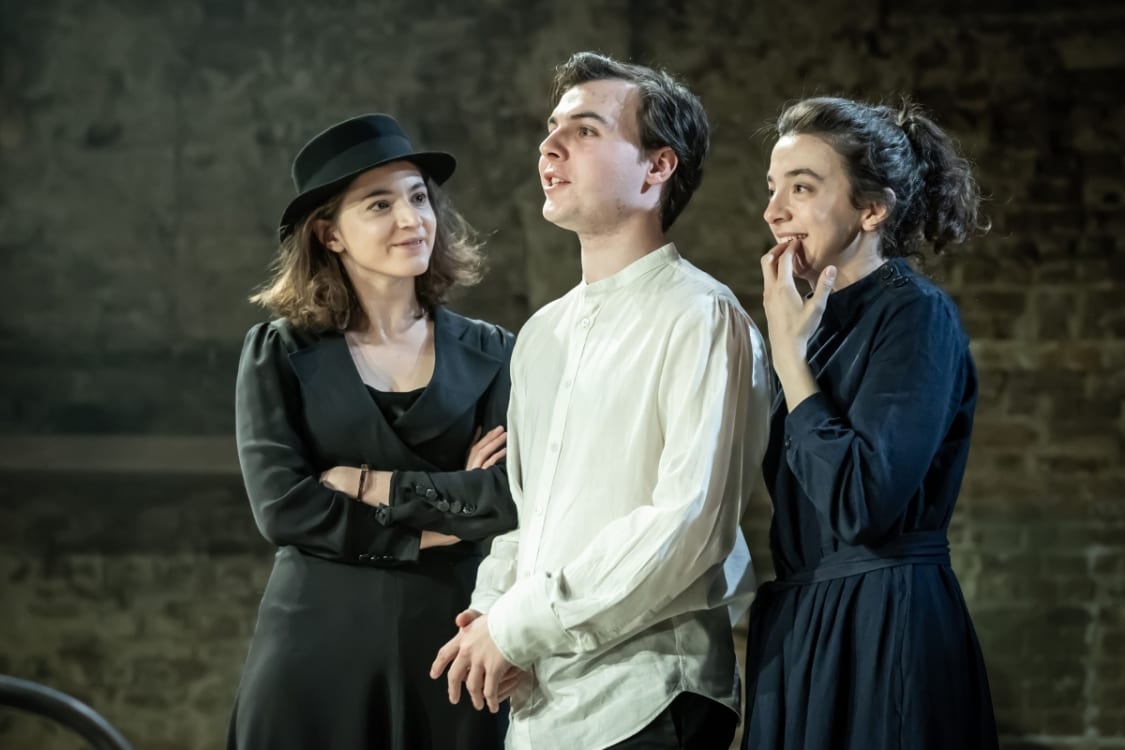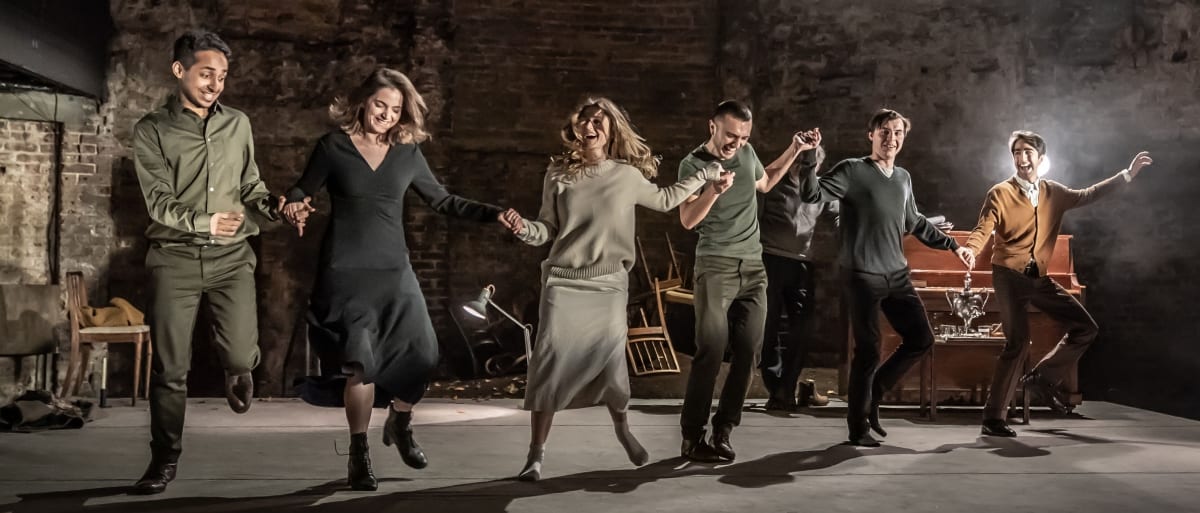After her fascinating production of Tennessee Williams’ Summer and Smoke, Rebecca Frecknall’s return to the Almeida does not disappoint! This time she tackles Chekhov’s classic in a new version by Cordelia Lynn. Lynn’s adaption is very faithful to the original, keeping true to the setting and context of Chekhov’s famous play.
A superb cast – alongside Pearl Chanda, Patsy Ferran, Ria Zmitrowicz who play the three sisters – elevates the production to a powerful three-hour exploration of lost dreams and lost potential. Chekhov is notorious for his depressed characters who live their lives while being deeply dissatisfied by them.

Masha, Irina and Olga – the three sisters of the title – are three girls in the 20s who are dreaming to move to Moscow. In their heads, Moscow becomes synonym of life. They dream of starting over in Moscow now that their father has died. They have dreams and aspirations, they are talented, skilled and educated. But they grow more and more frustrated and bitted with the life they lead. Moscow keeps fading away, just as their lives fade away. Irina described herself as a locked piano to which she has lost the key. With this beautiful memory, she encapsulates all the lost potential of hers and her sisters’ lives. Rebecca Frecknall creates a stark image of this metaphor by having a piano on stage which remains untouched from beginning to end. As an audience member you yearn to hear someone play the piano, someone to give this piano some attention. And yet, the end of the play comes with no-one ever playing the piano. One can’t help feel exactly the same for the three sisters. Olga keeps saying how she never wants to become a headmistress, and yet at the end of the play she succumbs to accept the offered position. Similarly, Irina ends up accepting a marriage proposal from a man she does not love – despite her dream to deeply fall in love with someone in Moscow. Finally, Masha stays trapped in a marriage she finds unfulfilling.

A great sense of nostalgia and mortality shine through the whole piece. The beautiful score composed by Angus MacRae punctuates the whole piece, and create moments of high tension. The music, in addition to the seamlessly incorporated movement of Frecknall’s direction, turn Chekhov’s play into a form of dance. The three sisters tiptoe through their lives; trapped in a house, in a village and in situations they desperately wanted to avoid.
The minimalist design by Hildegard Bechtler create a powerful blank canvas on which Chekhov’s characters tread upon as they realise the futility of their lives. The simplicity of the chairs, the untouched piano and violin, the white floor – all mirror the sparseness in these people’s lives, the coldness and inescapability of this house.
Overall, this is a very strong staging of one of Chekhov’s most classic plays. You follow the characters thoughts, internal struggles, and deliberations as they see their lives sinking into nothing.

